Search Results for Tag: Climate
Climate sceptics lose court case in New Zealand
Now here’s an interesting little snippet for a Friday afternoon. I was interested to read that New Zealand’s High Court has ruled against climate sceptics who took a government agency to court because it said the temperature had risen in the past century. The National Institute of Water and Atmospheric Research (NIWA) had concluded that the country’s climate had warmed almost one degree Celsius between 1909 and 2009. A private group called the “New Zealand Climate Science Education Trust” took the agency to court, saying NIWA’s methodology was flawed and the findings not peer reviewed. But the judge disagreed, saying the institute had used internationally recognised and credible scientific methodology. A group of climate change scientists from New Zealand universities welcomed the court verdict and described it as “bizarre” that a small group of scientists should go to court to question the basic science of climate change which, they, say, has been established for well over a century. “Almost all scientists active in climate research agree that human activity is causing the climate to change”. New Zealand’s glaciers have been retreating over the last century. The scientists also cite rising sea levels and the clear reduction of the Arctic sea ice.
“This misguided action of a small group adds confusion to a simple issue — the world is warming and future generations of New Zealanders will have to deal with the consequences,” the scientists’ statement said. – And they won’t be the only ones, adds the ice blogger up here in the northern hemisphere, working on a story on climate change and the North Sea and the ongoing mega-melt of the Arctic sea ice.
Bangkok, Doha – Countdown on for this year’s UN climate talks
What are these gannets doing on the ice blog? Well, it seems they migrated to Germany because of climate change. Read below to understand the connection. (No wisdom without pain…)
Did you know there has just been another round of UN climate talks in Bangkok? I don’t blame you if you didn’t. It’s hard to keep track of the “talks between the talks…” It’s also hard to keep up interest and optimism and not give way to resignation, given the disastrous melting of the Arctic ice and all the other clearly visible impacts of climate change.
![]() read more
read more
Greenpeace protest against drilling as Arctic ice reaches record low
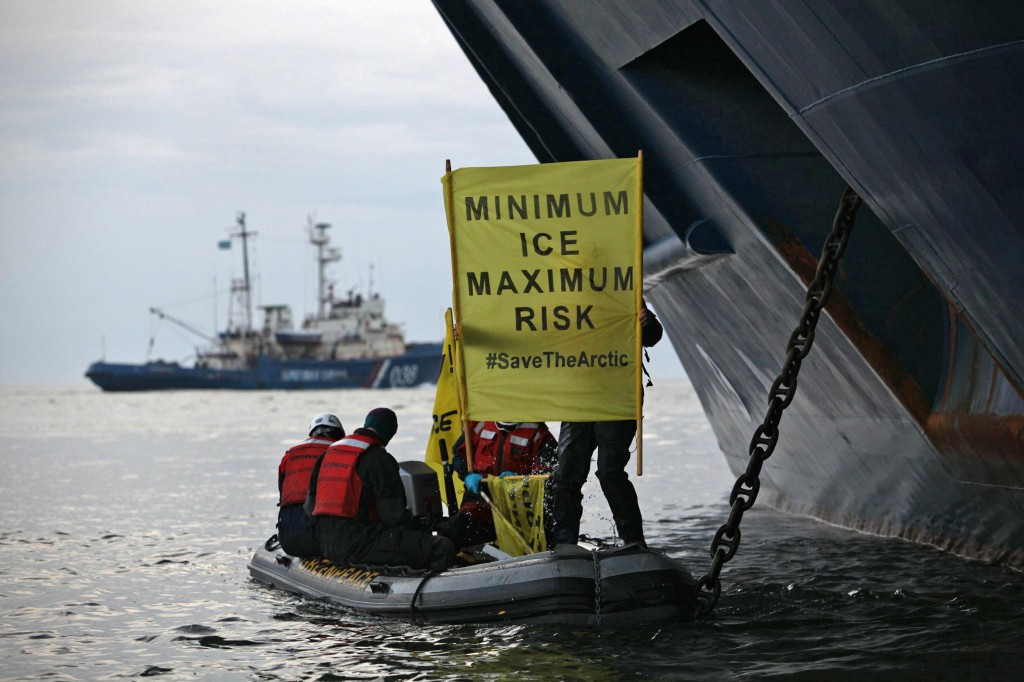
A team of Greenpeace activists attach themselves to the anchor chain of the Anna Akhmatova, a Gazprom passenger vessel. The team is preventing the ship from lifting anchor and sailing to the Prirazlomnaya oil platform to complete the work that will allow them to begin drilling in this fragile region. Photo by Denis Sinyakov / Greenpeace
Well, it has finally happened as feared. The National Snow and Ice Data Center at the University of Colorado has confirmed the summer sea ice in the Arctic has melted even further than in the record year 2007 – and it’s not at its annual summer minimum yet. It’s likely to melt more in the next three weeks. Must be a very frustrating feeling for the Greenpeace activists who have been hovering around the Russian Arctic drilling platform Prirazlomnaya, belonging to Gazprom, for the last five days.
![]() read more
read more
Sea ice set to beat melt records
It comes as no surprise to me but I find it deeply worrying that scientists say we are heading for a record sea ice melt. Experts from the University of Colorado at Boulder say summer ice in the Arctic is already coming close to the lowest level recorded, although there are still a couple of weeks left in the summer melt season. Mark Serreze, director of the University’s National Snow and Ice Data Center has been telling news agencies he and his colleagues are amazed by the measurements coming in.
Read more on this and why the melt is so significant at Phys.Org.
The Russian environment agency also reported record melting this month.
Meanwhile, the Chinese have sent their ice-breaker through the Arctic, as reported in the last ice blog post. Russia is stepping up efforts to make the Northern Route more regularly accessible. Canada is setting up a new high Arctic research station. The hunt for oil and gas in previously inaccessible areas is attracting more and more interest. The battle for influence in the Arctic is heating up with the climate. At the same time I read somewhere the other day that cars today have more horsepower than ever before. Aren’t we supposed to be saving energy and cutting emissions?
Scotland’s waves surge ahead with climate-friendly energy
The waters between the north of Scotland and the Orkney islands have just been declared a Marine Energy Park. What does that mean? Well, I’m just back from a visit to the mainland coast in the Caithness region, Orkney and Edinburgh, headquarters of the Scottish government and the leading marine energy companies, where I was able to see for myself. The steady waves and strong currents of these waters make it an ideal location for devices to turn the power of the sea into electricity. I can quite understand why the Scottish and the UK governments want to heighten the international reputation of the region as a potential provider of clean, climate-friendly energy and speed up the development. Orkney is home to EMEC, the world-leading European marine Energy Centre, where developers from all over the world are testing a wide range of wave and tidal energy devices. The centre even has a grid connection, so that energy produced in the water can be fed in.
I will be writing more about this on DW’s Environment site in the weeks to come. I’ll also be reporting for our radio programe Living Planet. I certainly got the feeling that some of the marine energy devices are ready to move on from the test stage to commercial application and viability in the next couple of years.
Energy from waves or tides has the potential to generate 27GW of power in the UK alone by 2050, equivalent to the power generated from eight coal fired power stations, according to the UK government. Minister of State for Energy and Climate Change Greg Barker says the industry could sustain thousands of jobs in a sector worth a possible £15bn to the economy by 2050.
The Scottish Energy, Enterprise and Tourism Minister Fergus Ewing was equally upbeat when I interviewed him last week. More from the Minister and those directly involved in marine energy in the not-too-distant future. Meanwhile, well done Scotland for pushing ahead with renewable energy and “surfing the waves” towards the ambitious – but not unrealistic- target of 100% renewable electricity by 2020.



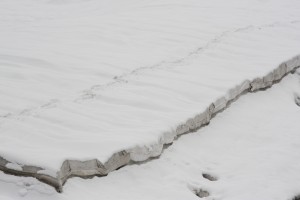


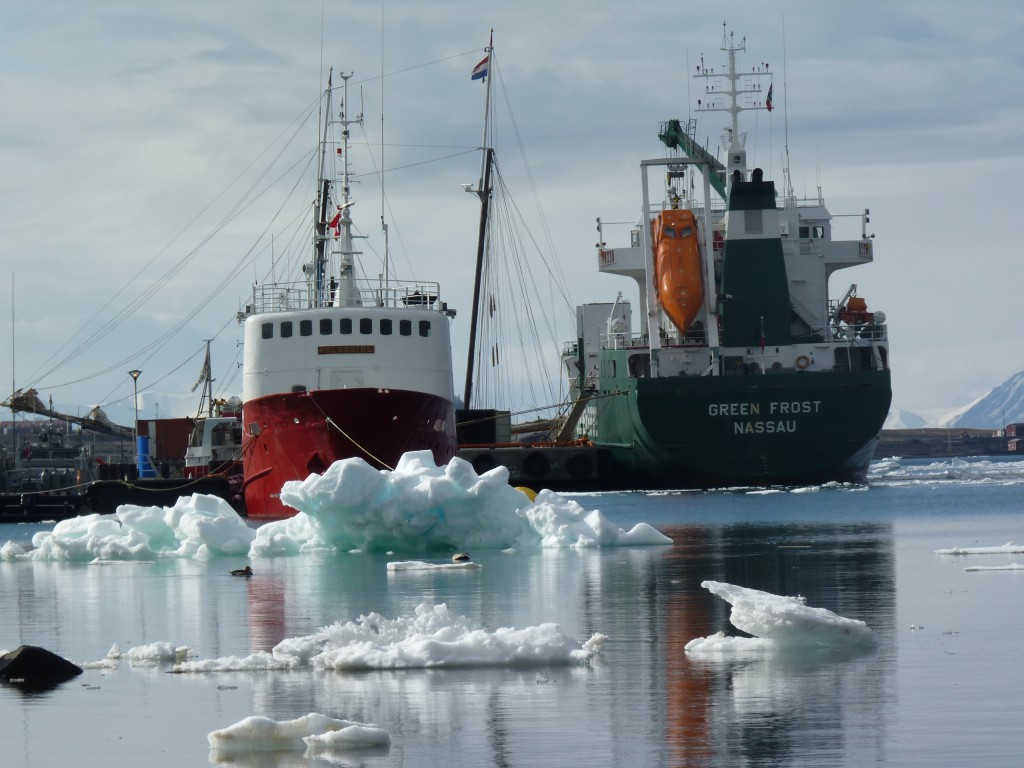
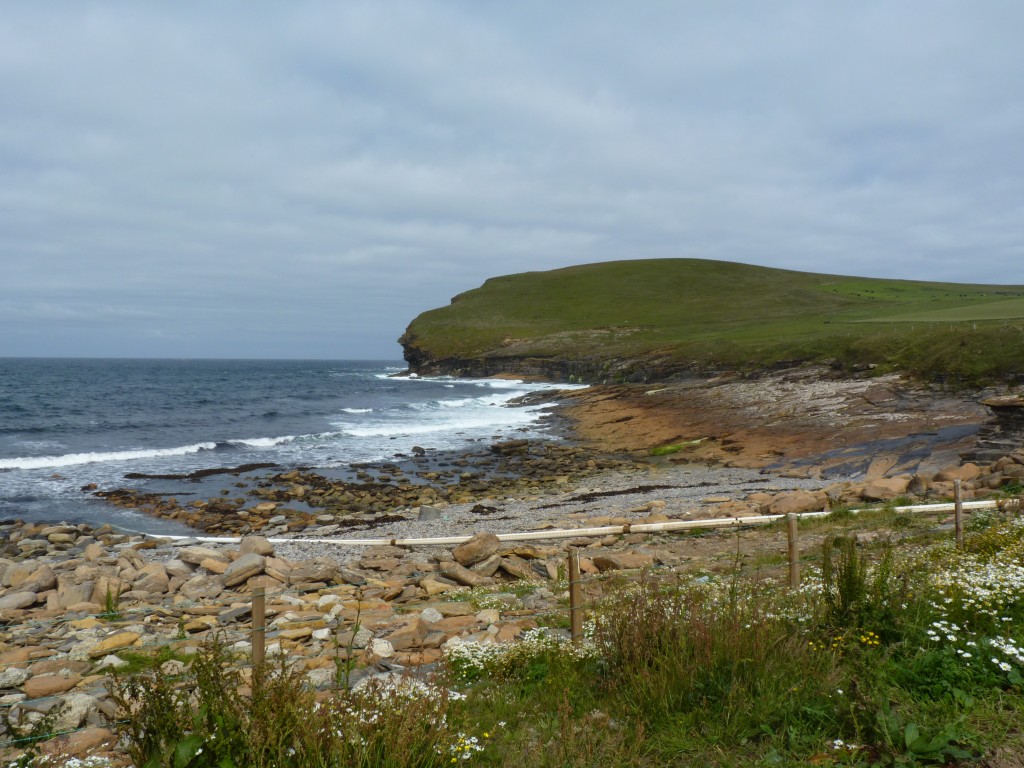
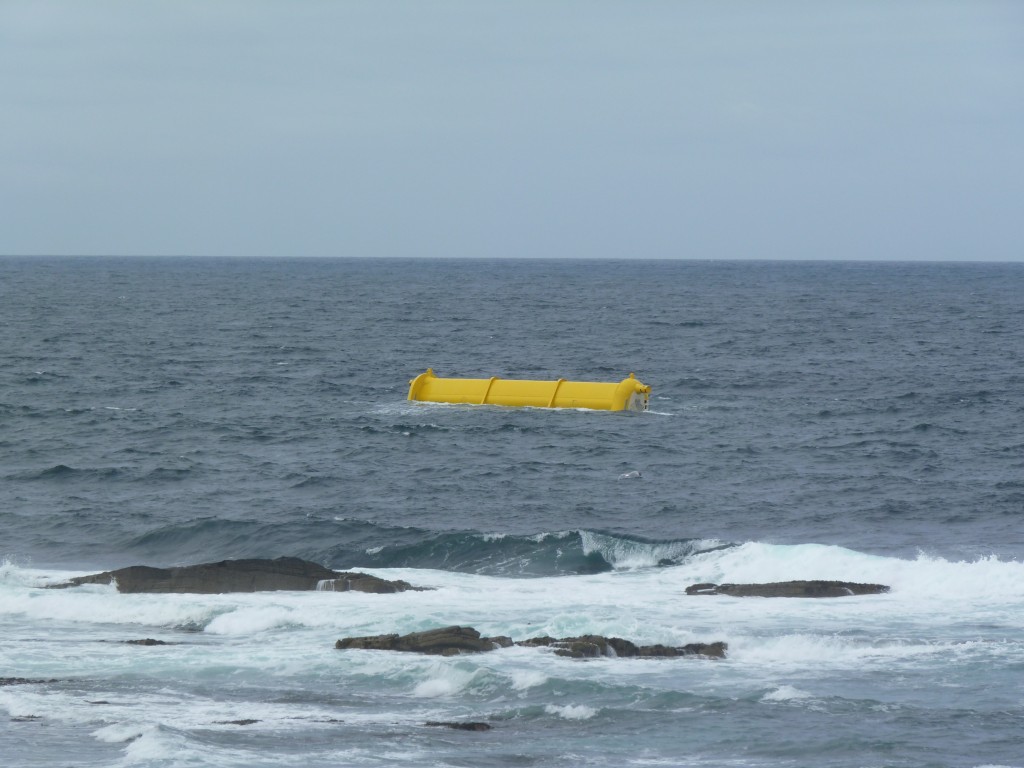
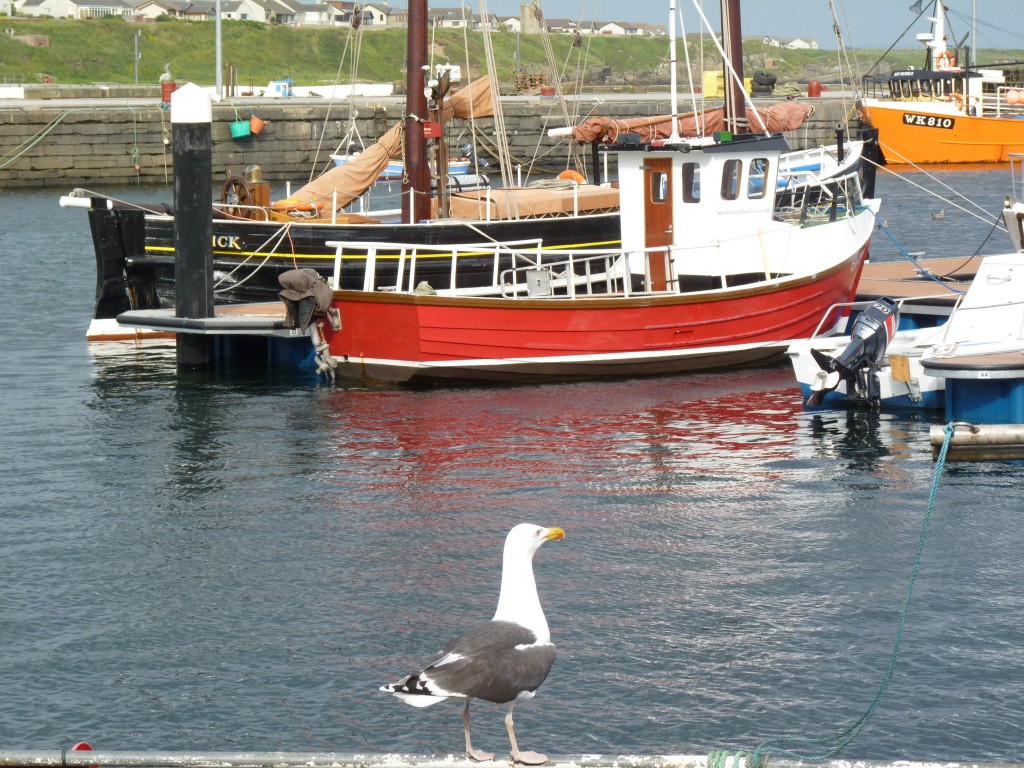
















Feedback